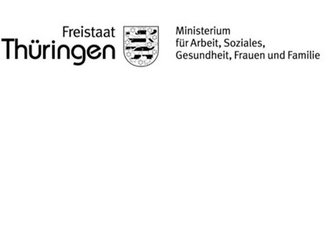
Aktuelles zur Forschung


Auswirkungen des Klimawandels auf den thermischen Komfort und den Energieverbrauch in Gebäuden
Teil einer Forschergruppe*
Recently, Earth’s climate has lucidly deteriorated, it affected various aspects in our life in the so known ‘Climate Change’. Climate change and global warming are a serious hazard to the wellbeing and comfort of humans and other creatures on the blue planet. Sustainable structural adjustments to climate change through engineering measures can reduce the vulnerability of buildings and their exposure to climate changes. In this project, the concern is in thermal comfort as a base of research to achieve energy efficiency in the built environment, a sector that is responsible for a large share of energy consumption of space conditioning, majorly, and consequently affecting global warming. Systematic and conceptual studies on the effect of climate change on structural integrity, indoor climate and energy efficiency in buildings are so far not been available.
The development of a concept for mapping and recording the climate change in buildings, quarters and infrastructure and the resulting effects relevant to design, load-bearing capacity, and suitability for use. In addition to aspects of static and dynamic stress due to changed climatic influences, the indoor climate and energy efficiency of existing and new residential and industrial buildings are to be increased using automated, digital recording methods for recording the current state of existing buildings and the use of buildings information models (BIM). Another goal is to develop methodological foundations for the direct assessment of climatic changes and their consequences for building security and use by means of action-specific acceptance criteria, measurement concepts and methods for the development of smart, safe systems for controlling adaptive processes, such as using structural sensors and IoT data.
This project is part of a joint collaboration of a research group including five chairs in the faculty of civil engineering. A series of experiments are to be conducted in controlled environment using wireless sensor nodes to investigate methods to increase thermal comfort and reduce energy consumption, and accordingly aim to create an adaptable model to reduce the effects of climate change. The anthropogenic climate change leads to an increase in summer heat periods. This also leads to higher air and radiation temperatures in buildings, which affects the thermal comfort of the users. As part of the sub-project, which the chair of Bauphysik jointly with the chair of Informatik im Bauwesen, the interactions between climate change and thermal comfort and energy consumption are to be analysed. Wireless sensor networks and distributed artificial intelligence are to be used, and demonstrator development is to be implemented as a cyber-physical system. Finally, there should be a coupling with the structural models and adaptation strategies of constructive engineering, which are made available in a prototype digital twin to be developed using an IoT connection.
Fördermittelgeber:
Gefördert durch den Freistaat Thüringen aus Mitteln des Europäischen Sozialfonds (ESF)
Laufzeit:
01/2020 - 06/2022
*Forschergruppe
Titel: Auswirkungen des Klimawandels auf Gebäude und Quartiere - Strukturelle Integrität, Raumklima und Energieeffizienz:
Institut für Konstruktiven Ingenieurbau
Komplexe Tragwerke (Jun.-Prof. Dr.-Ing. Lars Abrahamczyk, Koordinator)
Modellierung und Simulation - Konstruktion (Prof. Dr. Guido Morgenthal)
Stahl- und Hybridbau (Prof. Dr.-Ing. Matthias Kraus)
Institut für Bauinformatik, Mathematik und Bauphysik
Informatik im Bauwesen (Prof. Dr.-Ing. Kay Smarsly)
Bauphysik (Prof. Dr.-Ing. Conrad Völker)
Ansprechpartner:
Ammar Osman, M.Sc.
